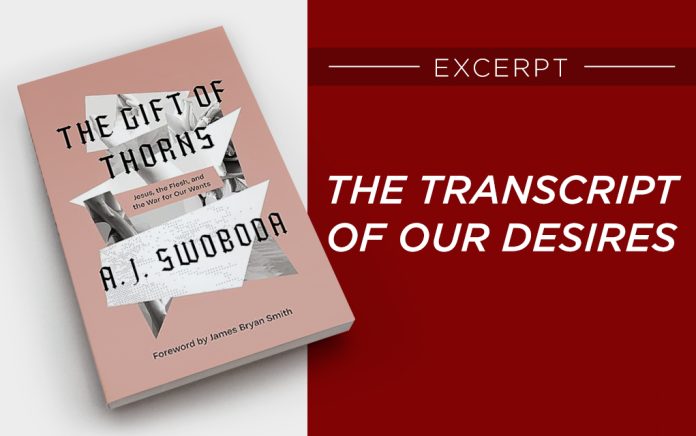Humans are a tragically odd bunch. Not only do our search histories reveal much about our longings and wants, but they have become a vulnerable point of exploitation. An entire desire economy—powered by an iPhone in the hand with its near-omniscient algorithms hidden within—has been constructed to fulfill our every desire, quantify wants, and monetize longings. Those in power not only know our desires; they’re doing what they can to reshape them. Have you ever been in a conversation with someone about a product or place and soon thereafter see an ad for said product or place on your phone? Our phones are watching us. We’re being spied on. This is Silicon Valley’s cheap version of prayer. Just say the word, and thy want will be healed.
This is the new world of “globalized desire” where—as William Cavanaugh says—“everything is available, but nothing matters.” And this is just the beginning. Given that there were 361 million internet users in 2000 and 5.5 billion by 2022, our internet searches will likely ignite legal battles for the foreseeable future. What will happen to them after we die? Can they be made public after our death? Do they die with us? Is it illegal to search for certain things? These pressing questions will be hashed out in the courts of law and opinion for years to come. But one thing remains certain: the transcripts of our desires are currently being housed in an air-conditioned data center out in the desert. This is nothing short of terrifying. “On our crowded planet,” Alexander Solzhenitsyn prophetically foresaw, “there are no longer any ‘internal affairs.’ Everything is now being recorded.”
Our moment presents a unique opportunity. Whether remaining hidden or becoming exposed, we can learn about ourselves by attending to what we desire and long for. Furthermore, we cannot expect to be liberated fully into our God-given glory without looking into the transcripts of our desire. To paraphrase Jesus, we can clean the outside of a cup and still remain wretched and malformed inside.8 The desires of our hearts—to which Jesus was undoubtedly referring to—constitute a critical and essential component of our “insides.” Holistic transformation remains out of reach without curiously and lovingly examining them.
For years, I’ve been invited to journey alongside women and men who have endured a gnawing struggle with an addiction to pornography. Often, when walking alongside someone through this crucible, I ask them to recount where they are, what time of the day it is, and what they are doing when they are most prone to return to their self-destructive pattern. In some instances, I ask them to name the particular types of pornography they find themselves drawn to. Oftentimes this becomes the first time an individual will lend reflection to such exposing questions. We don’t often want to think about our dark desires. We’d rather erase them and move on. All too common the person walking in a cycle of pornography addiction has quickly erased their search history to protect against exposure, shame, and reflection, taking little (if any) time to ponder the actual nature of their unwanted desires.
What if true transformation requires looking at those desires rather than turning away?
“Fantasies are road maps,” writes Jay Stringer. A Christian psychotherapist focusing on sexual resto- ration, Stringer directs his professional energy to those with sex addictions (often pornography). His book Unwanted details how addicts often erase their internet search histories after falling into unwanted sinful patterns. However, Stringer insists, healing invariably includes paying attention to what we look at and look for. In these desires, we can identify the very place where Christ wants to meet and heal our hearts. Desire can actually be a signpost to the places in our souls that most need love. What we assume to be a reservoir of lust may actually be a longing for intimacy. “Pornography searches expose lust,” Stringer writes, “but far more they reveal the dimensions of our lives that await love.”
We would rather shamefully look away from our desires than examine them with holy curiosity alongside the healing hand of the Holy Spirit. But this has been the human response since the beginning. We cover rather than confess. And this way of being is often only heightened and exacerbated in too many Christian com- munities, which ultimately leaves us pseudo-transformed. Darkness isn’t eradicated through denial. A different path is needed.
Jesus invites us to know our desires intimately. The truth will set us free. Pretending won’t. And ignoring our desires only empowers them.
God has much to teach us through the transcript of our desires. But we can’t begin there. If one’s internet searches illuminate our hidden desires, then the Bible serves (in the words of Catherine Dunlap Carter) as a kind of “incomparable record of human desire.”
Sacred Scripture diagnoses the human condition better than any. But that’s not where Scripture begins.
The Bible begins with God’s desire.
Excerpted from The Gift of Thorns by A.J. Swoboda. Copyright 2024. Published by Zondervan. Used by permission.

